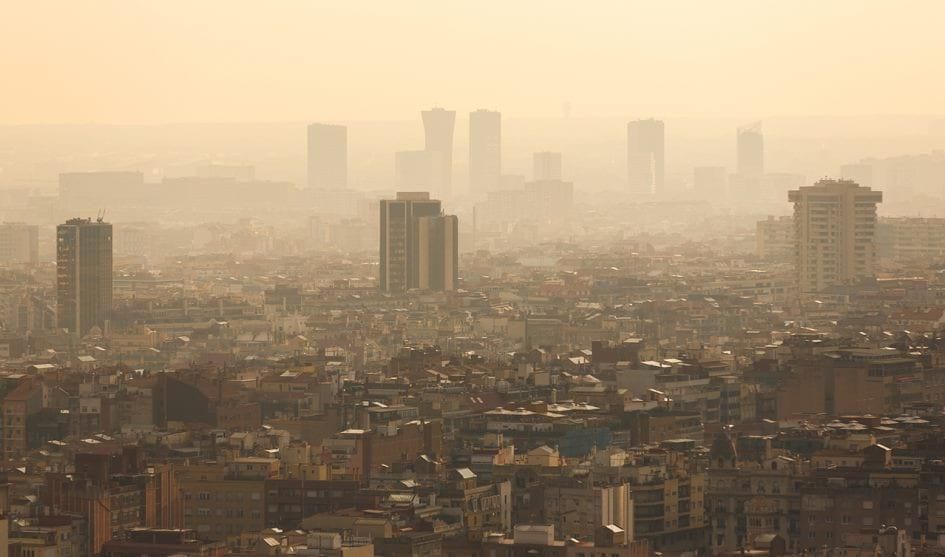The SJD Barcelona Children’s Hospital is leading a study into atmospheric contamination and pregnancy

1,200 pregnant women in Barcelona and Esplugues will participate in the “BiSC” project
The BiSC project (Barcelona Life Study Cohort) will be one of the most comprehensive studies on understanding how air atmospheric contamination affects babies’ health and brain development, even before they are born. Some aspects studied during the pregnancy will include the functioning of the placenta, brain development, foetal growth and the exposure of each woman to environmental contaminants. Brain development and the growth of the newborn will also be studied after birth.
The study will be carried out in Barcelona under the coordination of the Barcelona Institute for Global Health (ISGlobal), a centre supported by the “la Caixa” foundation, in collaboration with the BCNatal consortium (SJD Barcelona Children’s Hospital, Hospital Clínic and the Universitat de Barcelona) and the Hospital de la Santa Creu i Sant Pau.
The project manager and the head of the ISGlobal Infancy and Environment programme, Jordi Sunyer, has explained that the study needs participants: “We are hoping to count on the participation of 1,200 pregnant women, which will enable us to perform a detailed examination of how certain aspects of atmospheric contamination may be related to child health. One of the main objectives is to evaluate the protective role of the placenta against air contaminants." Another new feature compared to previous studies is the evaluation of each volunteer's individual exposure to atmospheric contamination, both at home and outdoors, through the use of fixed and mobile measuring devices.
We are looking for pregnant women
The project, which has already under way, is currently creating a cohort of pregnant women. The initial objective is to recruit 1,200 volunteers who must meet the following requirements:
- Be aged between 18 and 45 years and have a good general state of health.
- Be pregnant with a single child.
- Be in the first trimester of pregnancy (between weeks 11 and 14).
- Be living in the city of Barcelona or in Esplugues de Llobregat (the baby is expected to be delivered at the Hospital de Sant Pau, la Maternidad or the SJD Barcelona Children’s Hospital).
The study will be conducted through obstetric visits at the collaborating sites. Any women interested can learn more at the BiSC project website.
"The recruitment phase is key to ensuring the success of a project that could be very important for the health of future generations. We are therefore appealing to pregnant women in Barcelona”, explains Elisa Llurba, director of the Hospital de la Santa Creu i Sant Pau Obstetrics and Gynaecology Department.
The BiSC project has a budget of €3.5 million and has been made possible by the fusion of an Advanced Grant of the European Research Council (ERC) and competitive funds from the Health Effects Institute (HEI). The initial planned duration is three years, although the long-term objective is to establish a birth cohort that enables the health of the babies born during the study and that of their mothers to be monitored on a lifelong basis.
Diagnostic imaging is key to the study
The project is a continuation of the research lines that were initiated in previous studies, such as the INMA Project or the BREATHE project, also led by the investigator Jordi Sunyer. The main findings to date suggest that air contamination has harmful effects on the cognitive functions of school-age children and also leads to functional changes in the brain. The approach taken in the BiSC consists of focusing on the first stage of life to ascertain when the effects of air contaminants on cerebral development become apparent. With this in mind, we will examine the brain by conducting diagnostic imaging tests before and after birth.
"This is the first project to analyse the brain using pre- and post-birth images related to atmospheric contamination. It is a decisive stage in which the brain is continually developing and is particularly vulnerable", explains María Dolores Gómez Roig, head of the BCNatal - SJD Barcelona Children’s Hospital Obstetrics and Gynaecology Department. The research will also pay special attention to the growth of the child before and after birth



